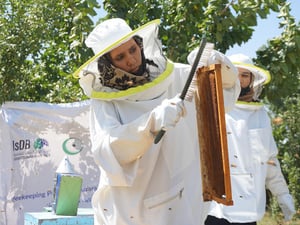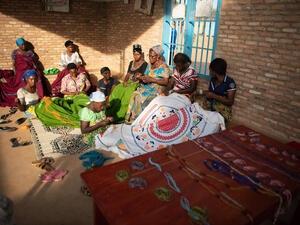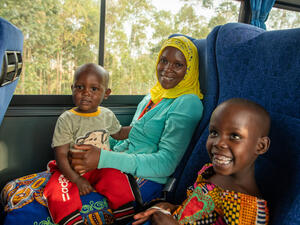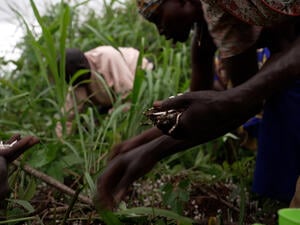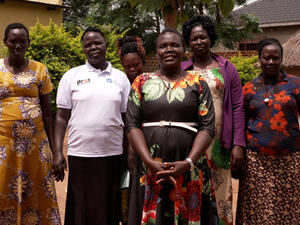38,000 internally displaced head home from Pakistan's Jalozai camp
38,000 internally displaced head home from Pakistan's Jalozai camp
In Pakistan, the latest phase in a return operation for people displaced by fighting in the tribal areas was completed on Sunday 5th June. Over the past two months 38,000 people were assisted in leaving the Jalozai camp - the largest of the area's four camps for internally displaced. Most have been returned to homes in Bajaur Agency, while a smaller number have gone to neighbouring Mohmand Agency. Both agencies are in the northern part of Pakistan's Federally Administered Tribal Areas, bordering Afghanistan.
The Government of Pakistan, which organized the voluntary return operation, has declared all of Bajaur, with the exception of Loi Sam, to be safe. It is currently working to identify an alternative site inside Bajaur Agency for the approximately 3,000 families who were living in Loi Sam and whose homes have been damaged by fighting. Areas declared safe in Mohmand include Lower Mohmand and parts of Upper Mohmand.
Displacement from Pakistan's tribal areas began in 2008 in the wake of a government crackdown on insurgents.
Before departing the Jalozai settlement, families were required to first register their intention to leave. They were then given a date for when they and their household belongings would be transported to their homes. UNHCR staff monitored the entire process to ensure that returns were voluntary.
UNHCR assisted the government by funding the transportation of returnees. We also established warehouses in Khar in Bajaur Agency and in Ghalanai in Mohmand. Returning families were provided with basic household supplies. Tents were also given to those whose homes were damaged in the conflict for use as temporary shelters while repairs are carried out. Other UN agencies are also providing help. The World Food Programme has enrolled returnees in cash for work programmes, UNICEF is providing hygiene kits, and WHO is offering health care through a partner organization.
At the peak of the displacement crisis in 2009, more than 21,000 families (around 147,000 people) were registered in Jalozai, however the vast majority of the displaced - around 90 per cent - lived outside camps, with friends, relatives and in rented accommodation.
An estimated 5,000 families (26,000 individuals) remain in Jalozai, most of them residents of areas still considered unsafe for returns. Jalozai has long been one of Pakistan's largest camps, and prior to 2008 was home to tens of thousands of Afghan refugees.
For further information on this topic, please contact:
- In Islamabad, Pakistan: Tim Irwin on mobile +92 300 815 3692
- In Geneva: Babar Baloch on mobile +41 79 557 9106

